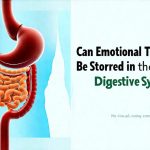Emotional trauma profoundly impacts individuals, often leaving lasting scars beyond the immediately obvious psychological effects. While we frequently associate trauma with mental health challenges like PTSD, anxiety, or depression, its reach extends far deeper, influencing physiological systems throughout the body. Increasingly, research demonstrates a powerful and bidirectional connection between our emotional state and the health of our gut – often referred to as the ‘gut-brain axis.’ This intricate link means that significant emotional distress, particularly trauma, can disrupt the delicate ecosystem within our digestive system, leading to a wide range of gastrointestinal symptoms. Understanding this relationship is crucial for holistic healing, recognizing that addressing gut issues may require acknowledging and processing underlying emotional wounds. It’s also important to consider how emotional burnout can contribute to these sensitivities.
The gut isn’t merely responsible for digesting food; it’s a complex organ with an immense role in immunity, nutrient absorption, hormone regulation, and even mental wellbeing. The sheer number of nerve endings in the gut – often called our ‘second brain’ – highlights its sensitivity to stress and emotional states. Trauma, by triggering chronic activation of the sympathetic nervous system (our fight-or-flight response), can significantly alter gut motility, permeability, microbiome composition, and inflammatory processes. This isn’t simply a matter of “stressing out” your stomach; it’s about fundamentally changing how your digestive system functions over time, potentially leading to persistent discomfort and health problems. Recognizing this connection allows for a more compassionate and effective approach to both mental and physical wellbeing, moving beyond symptom management toward addressing the root causes of distress. In some cases, these issues can even cause panic attacks.
The Gut-Brain Axis: A Two-Way Street
The gut-brain axis is not a one-way street; it’s a complex communication network that constantly transmits signals in both directions. This means our emotional state affects our gut health and vice versa. Think about the classic “gut feeling” – that intuitive sense you get in your stomach when something feels off. That’s a direct example of the gut communicating with the brain. The primary pathways involved include:
- The Vagus Nerve: This cranial nerve acts as a major highway between the gut and the brain, carrying information about inflammation, microbial activity, and digestive processes.
- The Enteric Nervous System (ENS): Often called our “second brain,” the ENS is a network of neurons embedded in the gut wall that independently regulates digestion but also communicates extensively with the central nervous system.
- The Microbiome: The trillions of bacteria, fungi, viruses, and other microorganisms residing in our gut play a vital role in modulating immune responses, producing neurotransmitters (like serotonin), and influencing brain function.
- The Immune System: Gut health is intimately linked to immune function; approximately 70-80% of our immune cells reside in the gut. Chronic inflammation in the gut can lead to systemic inflammation throughout the body, impacting mental wellbeing.
Trauma disrupts this delicate balance. The chronic stress response associated with trauma leads to increased cortisol levels, which directly impact gut permeability (often called “leaky gut”). This allows undigested food particles and toxins to enter the bloodstream, triggering immune activation and systemic inflammation. Furthermore, prolonged stress can alter the composition of the microbiome, reducing beneficial bacteria and promoting the growth of harmful ones. This dysbiosis – an imbalance in the gut microbiota – contributes to a cascade of symptoms, including bloating, gas, diarrhea, constipation, abdominal pain, and even more widespread health issues. Ultimately, trauma doesn’t just affect our minds; it fundamentally alters the biological environment within our digestive system. It’s also worth considering if cold weather might be exacerbating these symptoms.
The impact isn’t immediate for everyone. Symptoms may not appear right after a traumatic event but can emerge months or even years later as the cumulative effects of chronic stress and dysregulation take hold. This delayed onset can make identifying the connection between trauma and gut issues challenging, leading to misdiagnosis or ineffective treatment approaches. A holistic perspective that considers both emotional history and physiological symptoms is essential for effective healing.
Identifying Gut Symptoms Related to Trauma
Recognizing the potential link between emotional trauma and gut issues begins with understanding the diverse ways this can manifest. It’s crucial to remember that these symptoms aren’t necessarily caused by a physical illness but may be rooted in neurological and physiological changes triggered by past experiences. Common symptoms include:
- Irritable Bowel Syndrome (IBS): A frequent diagnosis among individuals with a history of trauma, IBS is characterized by abdominal pain, bloating, gas, diarrhea, and/or constipation.
- Inflammatory Bowel Disease (IBD): While IBD has genetic components, stress and trauma can exacerbate symptoms and potentially contribute to flare-ups.
- Food Intolerances & Allergies: Trauma can alter digestive function and immune responses, increasing sensitivity to certain foods.
- Leaky Gut Syndrome: Increased intestinal permeability allows substances into the bloodstream which leads to inflammation and a cascade of potential health issues.
- Chronic Bloating & Gas: Often stemming from microbial imbalances or impaired digestion.
It’s important to differentiate between these symptoms and other medical conditions through proper diagnostic testing performed by a healthcare professional. However, even with a clear diagnosis, exploring the emotional context can reveal underlying factors contributing to the condition. A careful assessment should include not only physical examination but also an exploration of past trauma history. This involves creating a safe space for individuals to share their experiences and recognizing that gut symptoms may be a manifestation of unresolved emotional pain. In some instances, gut healing might alleviate some of these issues.
The Role of the Microbiome in Trauma Recovery
The microbiome plays a surprisingly significant role in mental health, influencing mood, anxiety, and even resilience. Trauma can profoundly disrupt the microbiome, leading to dysbiosis—an imbalance between beneficial and harmful bacteria. This disruption affects:
- Neurotransmitter Production: Many neurotransmitters, like serotonin (the “happiness hormone”), are produced in the gut by microbial activity. A disrupted microbiome can impair neurotransmitter production, contributing to mood disorders.
- Inflammation Regulation: Beneficial bacteria help regulate inflammation; dysbiosis promotes chronic inflammation which is linked to many health conditions, including mental health issues.
- Stress Response Modulation: The microbiome influences the hypothalamic-pituitary-adrenal (HPA) axis—the body’s primary stress response system. Dysbiosis can lead to HPA axis dysregulation, making individuals more reactive to stress.
Restoring a healthy microbiome is therefore an important component of trauma recovery. Strategies include:
- Dietary Changes: Emphasizing whole, unprocessed foods, fiber-rich fruits and vegetables, fermented foods (yogurt, kefir, sauerkraut), and prebiotic-rich foods (garlic, onions, bananas) can nourish beneficial bacteria.
- Probiotic Supplementation: While not a one-size-fits-all solution, targeted probiotic supplementation under the guidance of a healthcare professional may help restore microbial balance.
- Stress Management Techniques: Practices like mindfulness, yoga, meditation, and deep breathing exercises can reduce cortisol levels and promote gut health.
Supporting the microbiome isn’t just about taking probiotics; it’s about creating an internal environment that fosters microbial diversity and resilience. This requires a holistic approach that addresses both diet and lifestyle factors, as well as emotional wellbeing. It is also important to be mindful of potential issues caused by artificial flavors.
Healing Strategies: Integrating Body & Mind
Addressing gut issues stemming from trauma requires a multi-faceted approach that integrates physical and mental health interventions. Simply treating the symptoms without addressing the underlying emotional wounds is unlikely to provide lasting relief. Effective strategies include:
- Trauma-Informed Therapy: Therapies like EMDR (Eye Movement Desensitization and Reprocessing), somatic experiencing, or trauma-focused cognitive behavioral therapy can help process traumatic memories and regulate the nervous system.
- Mindfulness & Body Awareness Practices: Techniques like yoga, tai chi, and mindful movement can increase body awareness, reduce stress, and promote emotional regulation.
- Dietary Interventions: As discussed above, dietary changes to support microbiome health are essential. Consider working with a registered dietitian specializing in gut health.
- Gut-Directed Hypnotherapy: This therapeutic approach uses hypnosis to target gut symptoms and improve brain-gut communication.
- Stress Reduction Techniques: Regularly practicing stress management techniques is crucial for mitigating the impact of chronic stress on gut function.
The key is to recognize that healing isn’t linear; it’s a process that requires patience, self-compassion, and a willingness to explore both internal experiences and external factors. It also necessitates collaboration between healthcare professionals – therapists, dietitians, gastroenterologists, and potentially other specialists – to provide comprehensive care. Healing trauma and restoring gut health are intertwined processes, each reinforcing the other, leading to greater wellbeing and resilience. Building support networks can also be incredibly beneficial during this process, as navigating these challenges doesn’t have to be done alone. Finally, consider how caffeine might impact your gut health while healing.


















